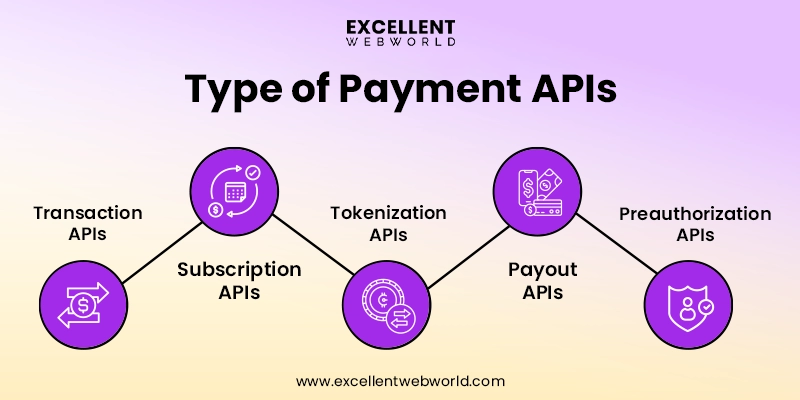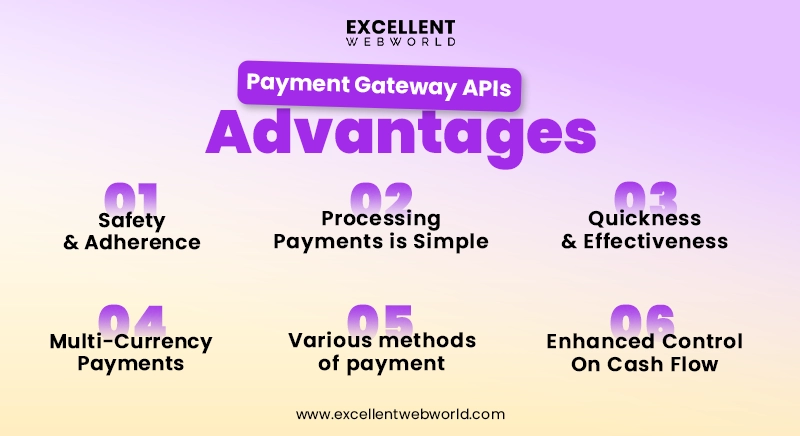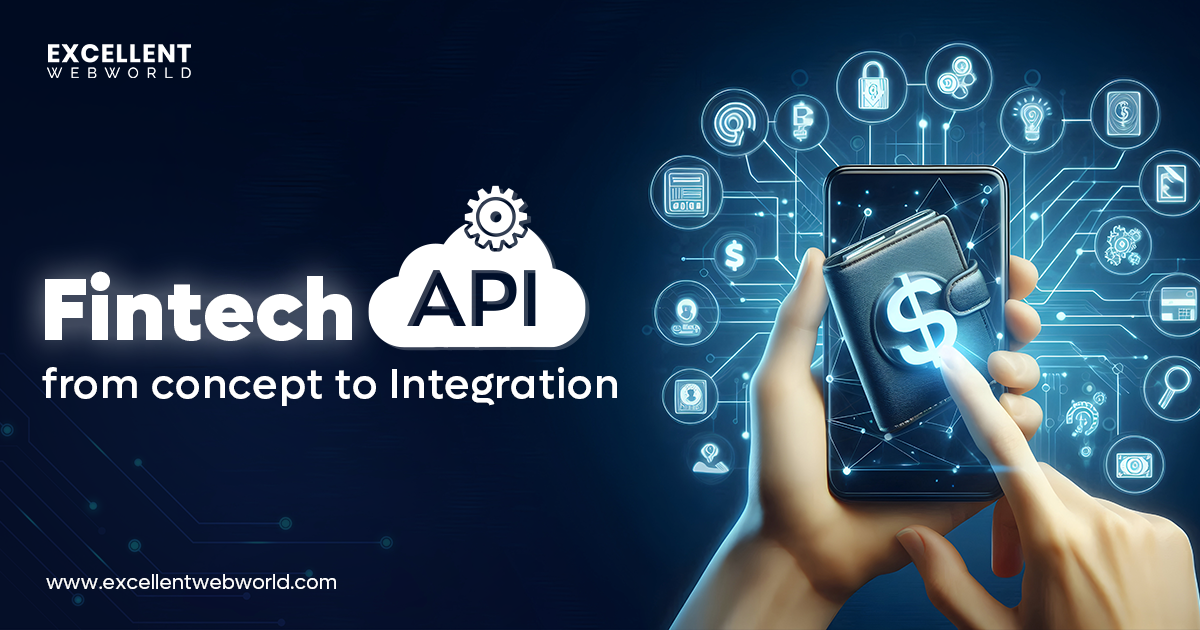Building a digital product and considering payments as an ordinary backend feature is a mistake. Having a payment feature in your app is a core part of the user experience, not just a technical necessity. Competitors are already leveraging AI to deliver fast, secure, and intuitive checkout flows that feel effortless to users. One-tap checkouts, predictive input, and smooth transitions are now expected as part of that experience. If your payment system isn’t AI-based and intelligent, it’s costing you conversions.
Artificial intelligence is completely transforming how payment systems work behind the scenes. From real-time fraud detection to smart routing and personalized payment recommendations, AI-powered online payment APIs are optimizing every activity. AI is not just processing your user money; it’s learning, adapting, and protecting it.
As we have years of experience in crafting API-first payment systems for scaling, security, and speed, our experts have helped many clients globally at Excellent Webworld. Let’s learn an insight created with experts that covers everything regarding what an online payment API is and how it works with artificial intelligence.
What is the Payment API?
An API is the application programming interface, which is a way to make connections or interfaces between computers. This API definition is suggested by the lead software engineer, Austin Kelsch, of Stax.
An API is, in the simplest terms possible, a means of communication between computers. It’s a simple method to start those conversations from the computer’s point of view.
Regarding payments, APIs make it possible for apps and eCommerce websites to take payments by guaranteeing that all parties participating in the process—processor, gateway, eCommerce platform, etc.—can “talk” to one another.
Using a payment API with AI technology, you can easily integrate payment processing into your mobile apps and software. In essence, it enables communication and interface between one or more programs and other programs, which helps eCommerce retailers and merchants better control the payment process.
The majority of payment APIs are configurable, giving companies the ability to tailor their infrastructure for processing payments. You can utilize APIs to build personalized credit or debit card processing settings that are specific to your eCommerce organization, as opposed to being constrained to a pre-made payment system.
What is AI in Payments?
AI in payments leverages machine learning and intelligent algorithms technology to optimize how digital transactions are processed, verified, and secured in the backend. Unlike the traditional rule-based systems, if you opt for AI-driven payment technologies, then it continuously learns from data patterns and enables smarter decision-making at every step, including fraud detection and transaction approvals.
This way, AI makes an intelligent layer on online payments that results in faster, safer, and more personalized transactions. Artificial intelligence helps prevent fraudulent activities in real time, reduces false declines, and automates repeated tasks such as identity verification or payment reconciliation. For AI developers working with payment APIs, integrating artificial intelligence means crafting more adaptive, secure, and customer-centric payment experiences that attract users and generate high revenue.
What Can Payment APIs Do?
A payment API most likely makes the purchasing process easier for customers who finish their online payments on your eCommerce website or mobile application.
As per the experts, a payment API or AI-driven payment API basically connects “a customer and their mode of payment (e.g., bank transfer, credit card) to a dollar amount and subsequently a merchant.
APIs make it easier for “a two-party relationship (i.e., the customer and merchant) to exchange money.” The API component is used in the exchange that occurs when payment information is delivered from an app or payment form to a service that can process it.
But that’s only one of the many essential features that payment APIs offer to retailers and eCommerce companies, such as the capacity to:
To put it briefly, payment APIs offer a plethora of ways to expedite and enhance the checkout process for software users and eCommerce shoppers.
How Online Payment API Works?
Making the most of APIs’ capabilities requires understanding their underlying principles and types of APIs. They can make it easier and faster for organizations to develop, connect, and integrate apps.
Online payment APIs usually sit between a web server and an application. An application makes an API request to the web server after the user makes an API call that instructs the computer to do a certain action. An API call is used to make the request; this call serves as a go-between for the web server and the application.
Which Type of Business Can Use Payment API?
AI-powered online Payment API has become crucial for firms in a variety of industries in the current digital era. Payment APIs integration facilitate smooth, safe, and effective transactions, which simplify the management of payments, subscriptions, and customer information for businesses. We’ll look at the many kinds of companies that can profit from payment API integration below.
1. E-commerce Stores
Maybe the most obvious candidates for integration of payment APIs are e-commerce companies. It allows you to provide various payment options that fit your customers’ needs. By integrating multiple payment gateways, you can offer bank transfers, digital wallets, and credit card options. For example, if your company is providing fintech services in Saudi Arabia, you should integrate the best payment gateways in Saudi Arabia. APIs make this integration simple and efficient. This ensures a smooth checkout process, which directly impacts customer satisfaction.
2. Subscription-Based Services
Recurring billing is crucial to subscription organizations like SaaS platforms and streaming services. To manage this efficiently, payment APIs are crucial. These APIs automate recurring payments and make the billing process smoother. They help track customer billing cycles and ensure accurate payments. Additionally, they send timely payment reminders, reducing the risk of missed payments. These companies can guarantee timely payment processing and uninterrupted plan upgrades or payment information updates for customers by incorporating a payment API.
3. Online Marketplaces
Strong payment systems are necessary for online markets that link customers and sellers in order to enable transactions. These platforms can split money between sellers, process payments securely, manage refunds effectively, and handle escrow services by connecting a payment API. Payment APIs facilitate international transactions as well, allowing marketplaces to serve clients from around the world while handling currency conversions and local law compliance.
4. Nonprofit Organizations
Integration of payment APIs can be quite advantageous for nonprofits that take online donations. Nonprofits can manage recurring contributions, securely process payments, and issue receipts thanks to APIs. In order to boost donations and overall income, they can also provide donors with a range of payment choices, such as digital wallets and credit cards.
5. P2P Lending Marketplaces
Peer-to-peer or P2P lending marketplaces allow lenders and borrowers to connect through a platform. There is no mediating authority like a bank, and payments occur directly between lenders and borrowers through payment APIs. For example, Zelle is one such app that allows P2P lending through email and phone numbers. Building a P2P lending app like Zelle needs not just robust but secure payment API integration.
What’s the Difference Between Payment APIs and Payment Gateways?
Online payment APIs with AI integrations provide a range of safe and user-friendly e-commerce payment options, thereby contributing to a flawless client experience. These payment APIs function, in general, by providing a client with the amount of money owing, a list of available payment methods, and the option to send the money to a merchant account.
Online payments by bank transfer, debit card, credit card, ACH, or payment gateways like Apple Pay, PayPal, and Google Pay can all be processed by payment APIs. Whether you run a B2C, B2B, or e-commerce company, payment APIs can give your clients a smooth checkout process.
Businesses that need to send large payments to a number of recipients, including freelancers, contractors, streamers, affiliates, publishers, suppliers, and more, depend heavily on payout APIs. Payout APIs facilitate the swift and effective distribution of funds to payees worldwide in a multitude of currencies and payment methods, such as wire transfers, PayPal, prepaid debit cards, US ACH, and foreign ACH.
For instance, a payout API may be used by a live streaming service provider like Twitch to process the payments that are due to its millions of streamers for the content they create.
What Are the Different Types of Payment APIs?
Payment APIs come in a variety of forms, and they are frequently grouped according to the particular functions they offer. Here are a few instances:

1. Transaction APIs
These are employed in the process of processing payments. They enable features like starting, stopping, and refunding payments.
2. Subscription APIs
The processing of recurring payments, a crucial component of subscriptions, is done using these APIs. They make it possible for companies to automatically bill clients regularly.
3. Tokenization APIs
The safe storing of payment information is made possible by these APIs. They substitute a non-sensitive token, or equivalent, for sensitive payment data, including credit card information.
4. Payout APIs
Payments to specific accounts can be made via these APIs. These APIs are frequently used by marketplaces and platforms to transfer money to vendors or service suppliers. It is one of the key Fintech API use cases enabling eCommerce marketplaces and platforms to facilitate payments.
5. Preauthorization APIs
The temporary holding of funds on a customer’s card is made possible via these APIs. When a company wants to confirm that a customer can pay before offering a service or sending a product, this can be helpful.
For you want to start a fintech company? Get a free consultation from our experts today!
What Are the Top Benefits of Using Payment API?
AI-driven online payment APIs are a vital tool for companies, particularly those that carry out online transactions, since they improve flexibility, fortify security protocols, and expedite operations. Let’s examine these advantages in greater detail:

1. Safety And Adherence
Your transactions are more secure when you use payment APIs. These APIs employ strong encryption methods in accordance with Payment Card Industry Data Security Standards (PCI DSS). This kind of sensitive data protection reduces the likelihood of fraud and data breaches. For some APIs, tokenization is essential because it provides an extra layer of protection. Through tokenization, private data, such as credit card numbers, are substituted with a distinct token or identity.
2. Processing Payments In A Simpler Manner
Payment APIs are a useful tool for businesses to streamline their payment acceptance and processing procedures. Payment APIs manage the intricate facets of interacting with card networks, financial institutions, and fraud prevention.
3. Quickness And Effectiveness
Automation is made possible via payment APIs, which speeds up procedures that would otherwise need a lot of manual labor. They can handle subscription renewals, manage refunds, process large transactions, and enable real-time payments, all of which improve operational efficiency.
4. Multi-Currency Payments
Payment APIs can handle currency conversion and foreign transactions if your company conducts business worldwide, making it easier to conduct business globally.
5. Various methods of payment
By utilizing payment APIs, businesses may bring a range of payment alternatives with them. Customers have more flexibility when they can choose their preferred payment methods. They may opt for digital wallets, bank transfers, or even credit and debit cards. This variety allows them to pay in a way that feels convenient and secure.
6. Enhanced Control On Cash Flow
You can better manage your cash flow by having real-time visibility into your transactions thanks to payment APIs. You can precisely manage income, refunds, and denials with instant access to payment data, which can help you make better financial decisions.
7. Reports And Data Insights
Numerous payment APIs provide analytics and data functionalities. They include information on dispute rates, successful and unsuccessful transactions, sales patterns, and more. Decision-making and company strategy may benefit greatly from these insights.
How To Choose the Right Payment API?
Choosing the right AI-based online payment API is essential for any organization. When making this decision, take into account the following factors:
How Excellent WebWorld Can Help With Payment API?
Excellent Webworld recognized as the #1 AI-driven payment API development company, specializing in easy online payment API integration, customized to meet your business’s requirements.
Whether you want to focus on AI-based payment gateway development or integrating well-known platforms like Square, PayPal, and Stripe, our expert team guarantees safe, effective, and expandable solutions tailored to your needs.
Being a fintech app development company, we manage everything, from recurring billing setup to handling international payment processing, with an emphasis on providing a user-friendly experience.
Thanks to our proficiency in API integration, your transactions will be quick, safe, and in accordance with the most recent industry standards. One of our clients needed robust online payment API integration for their eCommerce marketplace. We helped them by integrating payment APIs and developing the entire marketplace app from scratch.
End-to-end assistance is provided by us with AI expertise of the modern world, regardless of whether you need a customized solution for mobile payments, subscription services, or online sales. We guarantee seamless operations, enabling your company to grow with confidence, from integration to testing and continuing maintenance.
Collaborate with Excellent WebWorld to optimize your payment procedures and offer your clients an exceptional checkout experience. Not matter if you want to build a fintech app or just go with payment API our team is here to help!
Conclusion – Payment API
To sum up, online payment APIs have solidified their standing as the foundation of contemporary online transactions. Since their inception as simple middlemen, they have developed into potent instruments that enable safe and effective payments. Website Payment APIs are expected to have an even greater impact on the future of financial transactions as companies continue to adopt e-commerce.
Businesses must choose the right AI-powered API and comprehend its advantages in order to use this technology efficiently. The key to success in the digital age is provided by Payment APIs, whether for local or foreign payments. Accept this revolutionary technology and benefit from its advantages, which include improved security, smooth transactions, and a competitive advantage in the e-commerce industry.
Frequently Asked Questions
The cost of developing an API can range from $5,000 to $30,000 or more, depending on the complexity, features, and security requirements. Factors influencing the cost include the need for authentication, data processing, third-party integrations, and ongoing maintenance. Simple APIs with basic functionality will cost less, while complex, high-traffic APIs may also push costs higher due to increased development time and infrastructure needs.
A payment gateway is a service that authorizes and processes transactions between customers and merchants, acting as a bridge between a website and the payment processor. A payment API, on the other hand, is the interface developers use to integrate the payment gateway into an app or website, enabling custom payment flows and tailored user experiences.
Common languages for payment API development include Node.js, Python, Ruby, and Java. The choice depends on your existing tech stack, team expertise, and specific project requirements.
Yes, most payment APIs offer customizable payment flows, allowing you to create tailored checkout experiences, manage subscriptions, and handle payment errors programmatically. You can ask your payment API developer to give you exact glimpse for your API.
Compliance requirements typically include PCI-DSS for payment data security, GDPR for data protection in the EU, and local regulations depending on the region where payments are processed.

Article By
Mayur Panchal is the CTO of Excellent Webworld. With his skills and expertise, He stays updated with industry trends and utilizes his technical expertise to address problems faced by entrepreneurs and startup owners.



